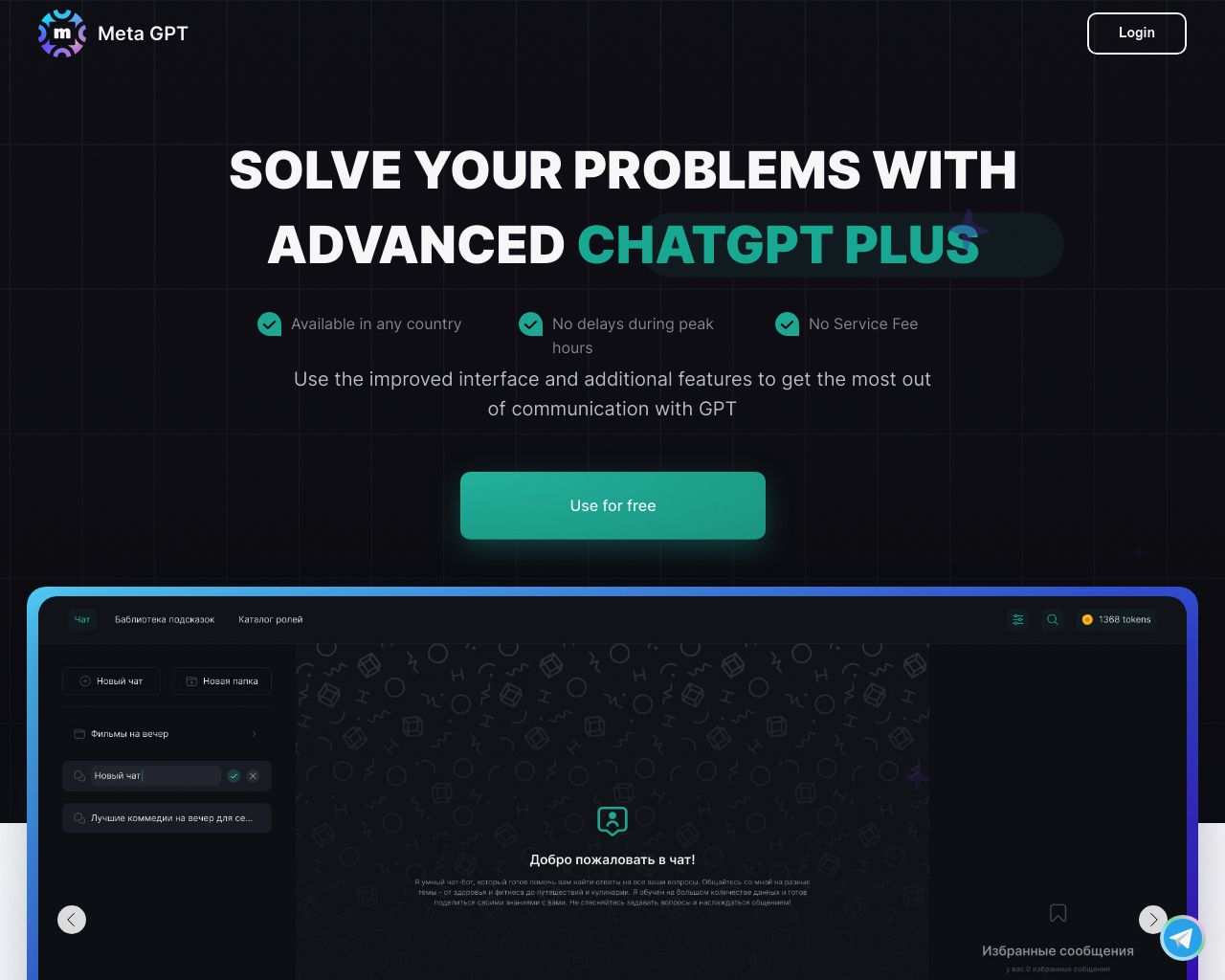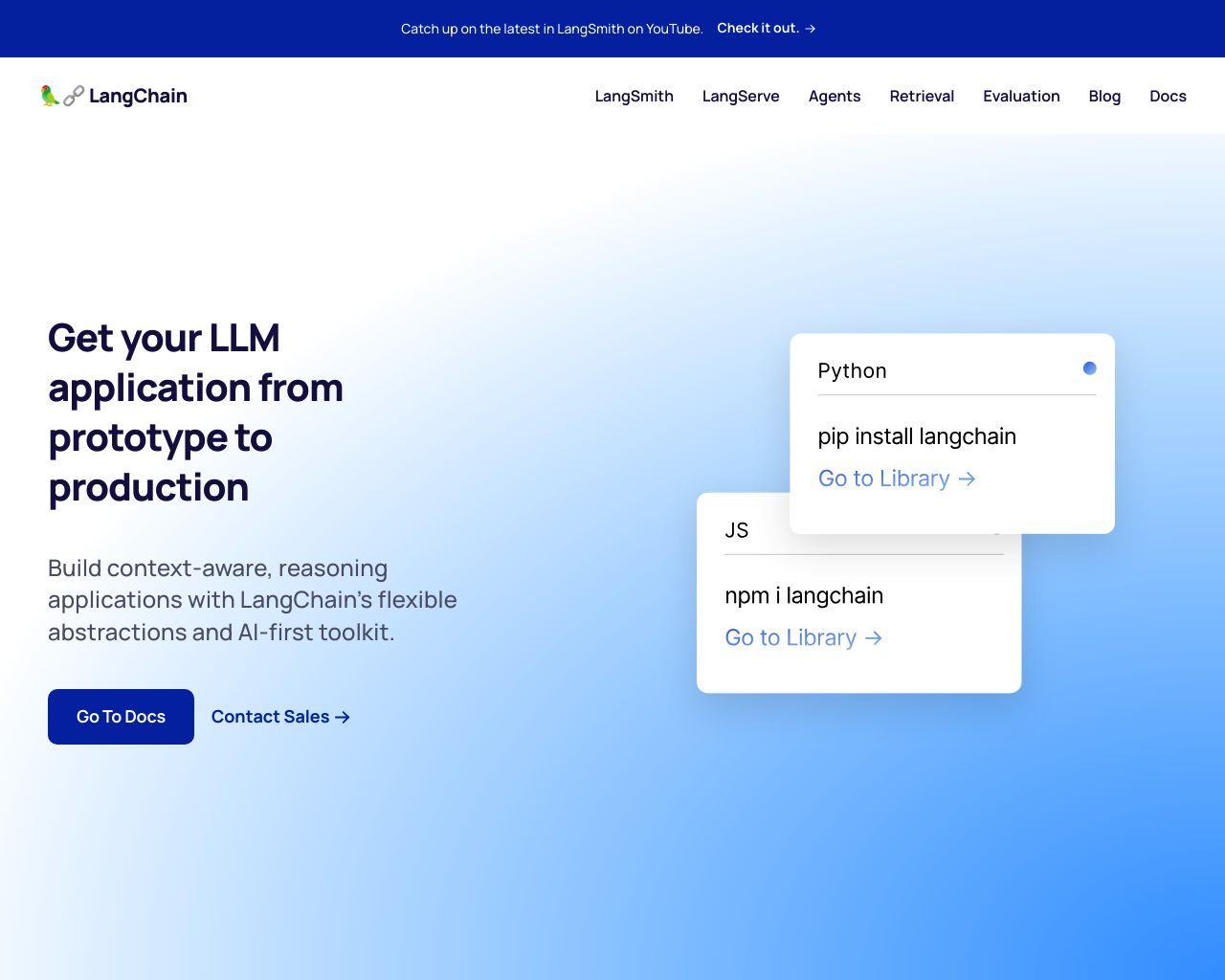The AI landscape brims with powerful tools for building intelligent applications, but choosing the right platform can be daunting. This comparison delves into MetaGPT, LangChain, and SmythOS, three leading frameworks that each offer unique approaches to AI development. MetaGPT simulates software team structures, LangChain provides flexible building blocks, and SmythOS delivers a comprehensive, user-friendly solution. We’ll explore their core features, strengths, and limitations to help you determine which platform best suits your AI development needs. Whether you’re a seasoned developer, a business leader, or an AI enthusiast, this analysis will equip you with the knowledge to make an informed decision in your AI journey.
MetaGPT Overview
MetaGPT revolutionizes multi-agent collaboration by combining human-like Standard Operating Procedures (SOPs) with advanced Large Language Models (LLMs). This open-source framework simulates a software development team structure, assigning distinct roles to AI agents such as product managers, architects, and engineers.

MetaGPT excels in breaking down complex tasks into manageable subtasks, mirroring real-world software development processes. Its unique approach, summarized as “Code = SOP(Team),” integrates established human practices into AI-driven workflows, enhancing consistency and reliability in outputs.
MetaGPT excels in breaking down complex tasks into manageable subtasks, mirroring real-world software development processes.
The framework generates comprehensive documentation throughout the development process, including requirement documents, design artifacts, and flowcharts. This feature not only improves the success rate of final code but also facilitates better human-AI interaction, making the development process more transparent and explainable.
While MetaGPT offers powerful collaboration tools and structured workflows, it lacks some features found in more comprehensive platforms. The absence of a visual builder or no-code editor limits accessibility for non-technical users. Additionally, the framework does not provide built-in support for multimodal interactions or advanced data management features like hosted vector databases.
MetaGPT integrates well with various APIs and supports deployment in different environments. However, its focus on replicating software development team structures may make it less flexible for applications outside this domain. The framework’s strength lies in its ability to handle complex, collaborative coding tasks, but users seeking a more versatile or user-friendly platform might find its specialized nature limiting.
LangChain Overview
LangChain simplifies the creation of applications powered by large language models (LLMs). This open-source framework offers developers a comprehensive toolkit for building, deploying, and managing LLM-driven solutions across various domains.
At its core, LangChain provides modular components that streamline the development process. These include prompt templates, LLM wrappers, and memory systems for maintaining context in conversations. The framework’s strength lies in its ability to chain these components together, enabling the creation of complex AI workflows with relative ease.
LangChain simplifies the creation of applications powered by large language models (LLMs). This open-source framework offers developers a comprehensive toolkit for building, deploying, and managing LLM-driven solutions…
LangChain excels in several key areas. Its retrieval-augmented generation (RAG) capabilities allow developers to enhance LLM responses with external data sources, improving accuracy and relevance. The framework also offers robust support for creating AI agents capable of reasoning and taking actions, expanding the potential applications of LLM technology.

Developers appreciate LangChain’s flexibility and extensive integration options. The framework supports a wide array of LLMs, vector stores, and external tools, allowing for customized solutions tailored to specific use cases. This adaptability makes LangChain suitable for projects ranging from simple chatbots to complex decision-making systems.
LangChain excels in several key areas. Its retrieval-augmented generation (RAG) capabilities allow developers to enhance LLM responses with external data sources, improving accuracy and relevance.
While LangChain offers powerful capabilities, it does present a learning curve for newcomers. The framework’s extensive feature set can be overwhelming, and effective use often requires a solid understanding of LLMs and natural language processing concepts. Additionally, as an open-source project, LangChain may lack some of the polished user interfaces and enterprise support options found in commercial alternatives.
LangChain’s ecosystem continues to grow, with active community contribution and regular updates. The framework’s LangChain Expression Language (LCEL) provides a standardized way to compose chains and agents, promoting code reusability and maintainability. For teams looking to rapidly prototype and deploy LLM-powered applications, LangChain offers a compelling blend of flexibility, power, and community-driven innovation.
Feature Comparison
MetaGPT and LangChain differ significantly in their core components and security features. MetaGPT excels in simulating software development team structures, assigning distinct roles to AI agents for collaborative problem-solving. Its emphasis on Standard Operating Procedures (SOPs) and structured workflows enhances consistency in outputs. However, MetaGPT lacks a visual builder or no-code editor, limiting accessibility for non-technical users.
LangChain, in contrast, offers a more flexible toolkit for building LLM-powered applications. It provides modular components like prompt templates and memory systems, allowing developers to create complex AI workflows easily. LangChain’s strength lies in its extensive integration options and support for retrieval-augmented generation (RAG), improving response accuracy. Unlike MetaGPT, LangChain doesn’t focus on team simulation but offers more versatility in application development.
In terms of security, both platforms support OAuth and API authentication. However, LangChain’s wider integration capabilities may present more robust security options. MetaGPT’s focus on structured workflows potentially offers better constrained alignment, ensuring AI behavior aligns with organizational goals. Neither platform explicitly mentions advanced encryption or IP control features, highlighting potential areas for improvement in both systems.
Feature Comparison Table
| MetaGPT | LangChain | SmythOS | |
|---|---|---|---|
| CORE FEATURES | |||
| Visual Builder | ❌ | ❌ | ✅ |
| No-Code Options | ❌ | ❌ | ✅ |
| Agent Work Scheduler | ✅ | ❌ | ✅ |
| SECURITY | |||
| Constrained Alignment | ✅ | ❌ | ✅ |
| IP Control | ❌ | ❌ | ✅ |
| COMPONENTS | |||
| Zapier APIs | ✅ | ❌ | ✅ |
| Data Lakes | ❌ | ❌ | ✅ |
| DEPLOYMENT OPTIONS (EMBODIMENTS) | |||
| Deploy as Webhook | ✅ | ❌ | ✅ |
| Staging Domains | ❌ | ❌ | ✅ |
| Production Domains | ✅ | ❌ | ✅ |
| Deploy as Scheduled Agent | ✅ | ❌ | ✅ |
| DATA LAKE SUPPORT | |||
| Hosted Vector Database | ❌ | ❌ | ✅ |
| Sitemap Crawler | ❌ | ❌ | ✅ |
| YouTube Transcript Crawler | ❌ | ❌ | ✅ |
| URL Crawler | ✅ | ❌ | ✅ |
| Word File Support | ✅ | ❌ | ✅ |
Best Alternative to MetaGPT and LangChain
SmythOS offers a superior alternative to MetaGPT and LangChain as an agentic AI automation platform. Our visual drag-and-drop interface empowers users to create sophisticated AI agents without extensive coding knowledge. We provide unmatched flexibility through pre-built API integrations and support for various AI models from leading providers. SmythOS excels in ease of use, comprehensive features, and adaptability to unlimited use cases. Unlike MetaGPT’s rigid team simulation approach or LangChain’s developer-focused toolkit, we enable rapid development and deployment of AI solutions for users of all skill levels.
SmythOS offers a superior alternative to MetaGPT and LangChain as an agentic AI automation platform. Our visual drag-and-drop interface empowers users to create sophisticated AI agents without extensive coding knowledge.
Our hosted vector database, advanced security features, and diverse deployment options surpass the capabilities of both competitors. With SmythOS, users can build, customize, and scale AI agents to tackle complex business challenges efficiently. Our platform’s intuitive design and robust functionality make it the ideal choice for organizations seeking to harness the full potential of AI automation across their operations.
Conclusion
MetaGPT and LangChain offer powerful capabilities for AI development, but SmythOS emerges as the superior choice for businesses seeking comprehensive, user-friendly AI solutions. MetaGPT excels in simulating software development team structures, while LangChain provides flexible tools for building LLM-powered applications. However, SmythOS combines the best of both worlds and adds unique features that set it apart.
SmythOS’s intuitive drag-and-drop interface and extensive integration ecosystem make AI development accessible to a broader audience, including non-technical users. Its support for multi-agent orchestration, versatile deployment options, and pre-built API integrations significantly reduce development time and complexity. Unlike MetaGPT and LangChain, SmythOS offers a complete end-to-end solution, from creation to deployment and management of AI agents.
For businesses looking to harness the full potential of AI, SmythOS provides unparalleled value. Its ability to deploy agents across various platforms, including popular services like Google Vertex and Amazon Web Services Bedrock, ensures seamless integration with existing systems. The platform’s focus on security, scalability, and user-friendliness makes it an ideal choice for enterprises of all sizes.
We invite you to experience the power of SmythOS firsthand. Create a free SmythOS account today and start building your AI-powered future. With our 30-day money-back guarantee and unlimited agent creation, you can explore the platform risk-free and discover how SmythOS can revolutionize your workflow.